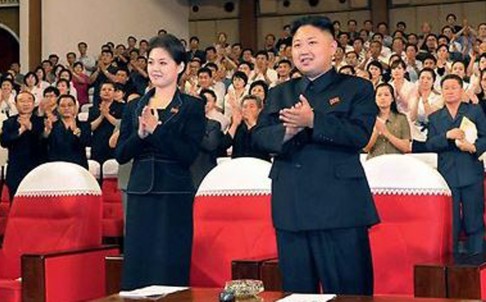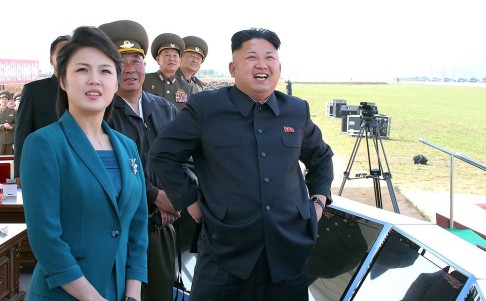Celebrating Teachers' Day in North Korea
Moon Eun Ju, intern | 2014-05-16 08:20
May 15th is Teachers’ Day in South Korea, and students often present their teachers with carnations to show their gratitude. In North Korea, a similar celebration called "Education Day" takes place on September 5th.
According to defectors, September 5th sees teachers gather in regional educational offices for a briefing, discuss future educational directions, and attend a ceremony to commemorate teachers who have excelled throughout the year.
Prior to the Arduous March of the 1990s, students were given the day off while teaching staff gathered at the city and county level to engage in sports matches.
After the 2000s, however, a new practice emerged whereby students would present their teachers with gifts. The practice coincided with a large influx of products manufactured in China, and teachers started to receive items as varied as voice recorders and electronic rice cookers. Now it is often the case that the school parents' committee combines their resources to purchase expensive clothes or seasonings.
Teachers typically demand high-end gifts from the head of the parents’ association, defectors claim, as such behavior is necessary to survive in the absence of a functioning state rationing system. Should a teacher receive a gift they perceive as lower in quality than the others, they will openly express their dissatisfaction.
Jong Hyon Song [pseudonym], a former elementary school teacher from Yangkang Province, told Daily NK, “On Education Day the teachers would go to the head of the parents’ association and demand gifts or other products. Each teacher is presented with a quota on the sports day, and this responsibility is borne solely by the association.”
“The head of the parent’s association knocks on the door of each house and asks parents to chip in for gifts, and the quantity and quality of the gifts will vary according to their procurement skills. Some teachers can get a new suit or around 20kg of rice,” Jong continued.
Furthermore, “The teachers are well aware what homeroom the children of the donju [new affluent classes] and the big market players belong to. Often, teaching staff will go to the school principal and request to be placed as the homeroom teacher for those classes.”
Gaining university entrance is similarly problematic in the North. As the country suffered under chronic food shortages in the mid-1990s, the most important requirements to enter university became money and class background. Bribes for the university dean and Party secretaries are now a necessary component in the admissions process, as university entrance may also be granted at their discretion.
Bribery is just as rampant within the public school system in North Korea and students can receive special treatment should they get on side with a teacher. Parents must provide expensive gifts to ensure their child enters the advanced class made up of two or three students, and bribes can also facilitate a student rising to the rank of class captain.
The current reality is a direct result of the Arduous March, defectors say. Although teachers may wish to elevate the brightest and best students to leadership positions in the school, they must also ensure their own livelihoods. Thus the children who end up doing well are inevitably the children of the donju and the cadres.
Another former teacher now living in the South told Daily NK, “It’s so unfortunate that the bright students can’t be raised up. Teachers used to meet up and complain, saying, ‘What is becoming of this country’s education system? In the end the country loses out, but we have to do this so we can live.’”
Moreover, the defector went on, “The teachers are busy trying to get enough to eat so they don’t have time to attend night lectures. Instead, they moonlight as guards and jobs like that. Students are now changing as they are exposed to foreign culture, but the teachers are so busy earning money they can’t modify their teaching to keep up, let alone find the time to develop themselves. Now a situation has emerged whereby teachers cannot keep up with the students.”
Compounding the issue is the 2012 revision to the country’s education law, extending compulsory education to 12 years and precipitating a rise in demand for teachers. At the same time, more and more teachers are leaving the profession as they cannot survive without state benefits. As a result, specialists with no teaching background or university degree are able to sit and pass the state teaching exam.
As one defector explained, “Teachers already in the system underwent significant hardships to graduate, but the new teachers coming in specialize in one thing only and have become teachers that way. The others do not look upon them favorably.”











